Zongyu Yin
Analyzable Chain-of-Musical-Thought Prompting for High-Fidelity Music Generation
Mar 25, 2025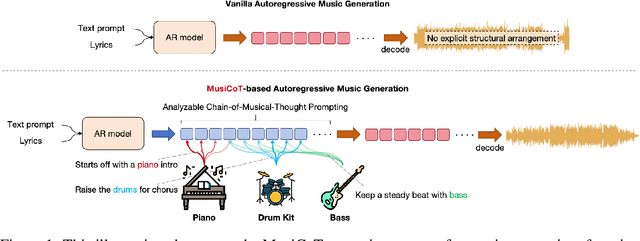
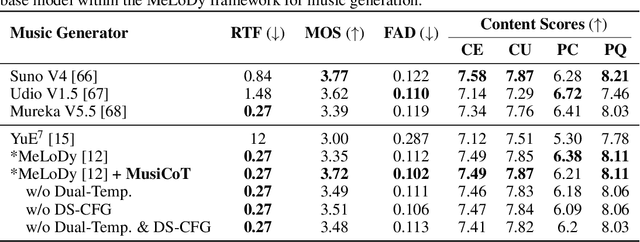
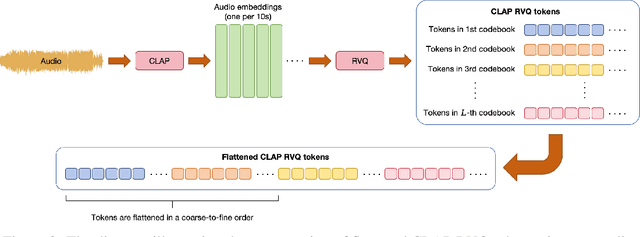
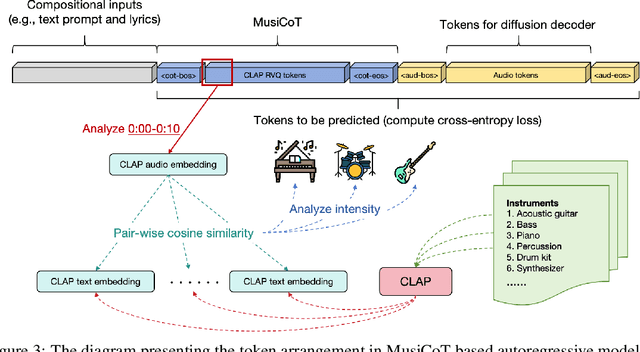
Abstract:Autoregressive (AR) models have demonstrated impressive capabilities in generating high-fidelity music. However, the conventional next-token prediction paradigm in AR models does not align with the human creative process in music composition, potentially compromising the musicality of generated samples. To overcome this limitation, we introduce MusiCoT, a novel chain-of-thought (CoT) prompting technique tailored for music generation. MusiCoT empowers the AR model to first outline an overall music structure before generating audio tokens, thereby enhancing the coherence and creativity of the resulting compositions. By leveraging the contrastive language-audio pretraining (CLAP) model, we establish a chain of "musical thoughts", making MusiCoT scalable and independent of human-labeled data, in contrast to conventional CoT methods. Moreover, MusiCoT allows for in-depth analysis of music structure, such as instrumental arrangements, and supports music referencing -- accepting variable-length audio inputs as optional style references. This innovative approach effectively addresses copying issues, positioning MusiCoT as a vital practical method for music prompting. Our experimental results indicate that MusiCoT consistently achieves superior performance across both objective and subjective metrics, producing music quality that rivals state-of-the-art generation models. Our samples are available at https://MusiCoT.github.io/.
Efficient Neural Music Generation
May 25, 2023
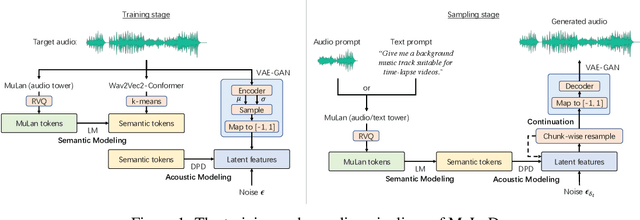
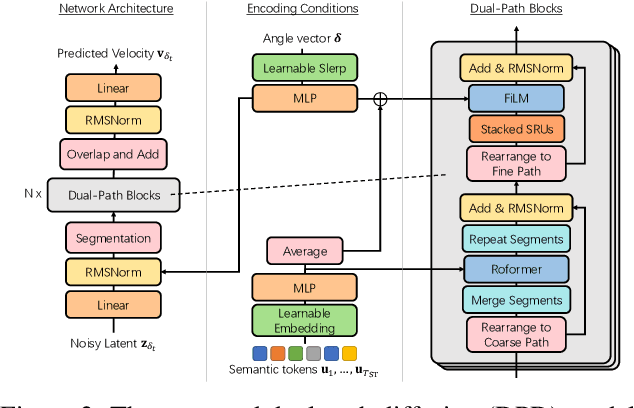

Abstract:Recent progress in music generation has been remarkably advanced by the state-of-the-art MusicLM, which comprises a hierarchy of three LMs, respectively, for semantic, coarse acoustic, and fine acoustic modelings. Yet, sampling with the MusicLM requires processing through these LMs one by one to obtain the fine-grained acoustic tokens, making it computationally expensive and prohibitive for a real-time generation. Efficient music generation with a quality on par with MusicLM remains a significant challenge. In this paper, we present MeLoDy (M for music; L for LM; D for diffusion), an LM-guided diffusion model that generates music audios of state-of-the-art quality meanwhile reducing 95.7% or 99.6% forward passes in MusicLM, respectively, for sampling 10s or 30s music. MeLoDy inherits the highest-level LM from MusicLM for semantic modeling, and applies a novel dual-path diffusion (DPD) model and an audio VAE-GAN to efficiently decode the conditioning semantic tokens into waveform. DPD is proposed to simultaneously model the coarse and fine acoustics by incorporating the semantic information into segments of latents effectively via cross-attention at each denoising step. Our experimental results suggest the superiority of MeLoDy, not only in its practical advantages on sampling speed and infinitely continuable generation, but also in its state-of-the-art musicality, audio quality, and text correlation. Our samples are available at https://Efficient-MeLoDy.github.io/.
 Add to Chrome
Add to Chrome Add to Firefox
Add to Firefox Add to Edge
Add to Edge